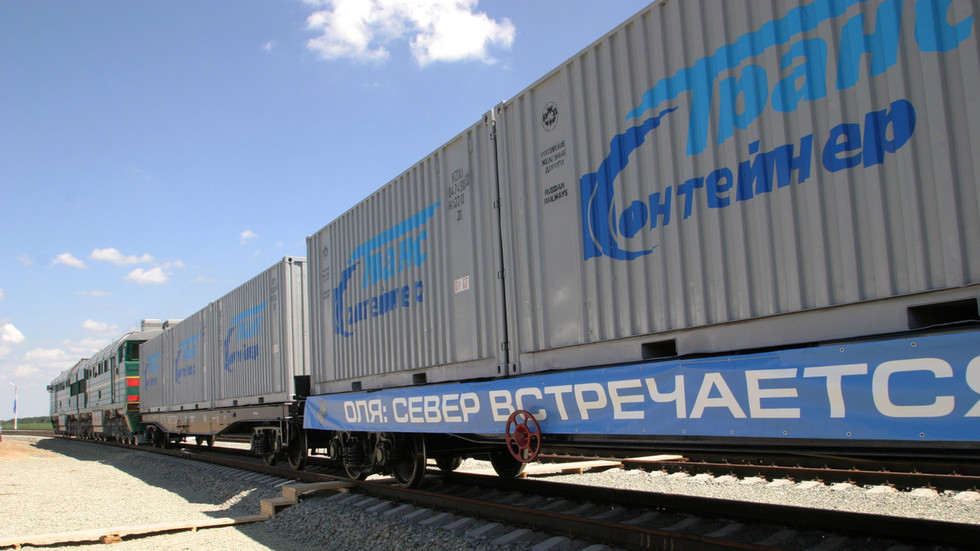
The train is traveling along the key North-South trade route, according to Iran Railways

© Sputnik / Sergey Subbotin
A transit train from Russia hauling 36 containers passed through the Iranian transport corridor to Saudi Arabia over the weekend, the head of Iran Railways, Miad Salehi, announced on Sunday, according to media reports.
Salehi said it was the first time transit cargo from Russia had traveled via Iran’s Incheh Borun rail border near Turkmenistan. It was dispatched to the port city of Bandar Abbas on the Strait of Hormuz and will be transferred from there to the Saudi Arabian port city of Jeddah by sea, the official explained.
Iran’s Secretary of the Supreme Council of Free Economic Zones Hojatollah Abdolmaleki earlier told RIA Novosti that one of the new transport corridors within the wider International North-South Transport Corridor (INSTC), passing through Iranian territory, has begun to operate. According to him, the new corridor links Russia and Arab countries by rail through Iran and by sea through the Persian Gulf.
The INSTC, which has been touted as an alternative to the Suez Canal, is a planned 7,200km (4,473 miles) multi-mode transit system that will connect ship, rail, and road routes for moving cargo between Russia, Iran, Azerbaijan, India, and Central Asia.
The construction of the INSTC began in the early 2000s, but developing it further has taken on a new impetus in light of Western sanctions, which have forced Russia to shift its trade flows from Europe to Asia and the Middle East.
The total cargo flow along the INSTC was 14.5 million tons in 2022, and the projection for this year is 17.6 million tons, according to Russia’s Transport Ministry.
READ MORE: Iran and Russia seek to deepen ties between free trade zones
Russia has repeatedly suggested that the INSTC could become a substitute for the Suez Canal – the 193km (119 miles) waterway in Egypt that connects the Mediterranean Sea to the Red Sea. About 12% of global trade passes through it each day.
Moscow is seeking to both ensure interconnectivity throughout the INSTC and launch regular freight shipping lines, President Vladimir Putin said last month. The volume of goods shipped via the INSTC is expected to almost triple over the next seven years, and the Russian leader has suggested establishing a logistics hub for the corridor on the African coast.
For more stories on economy & finance visit RT’s business section




